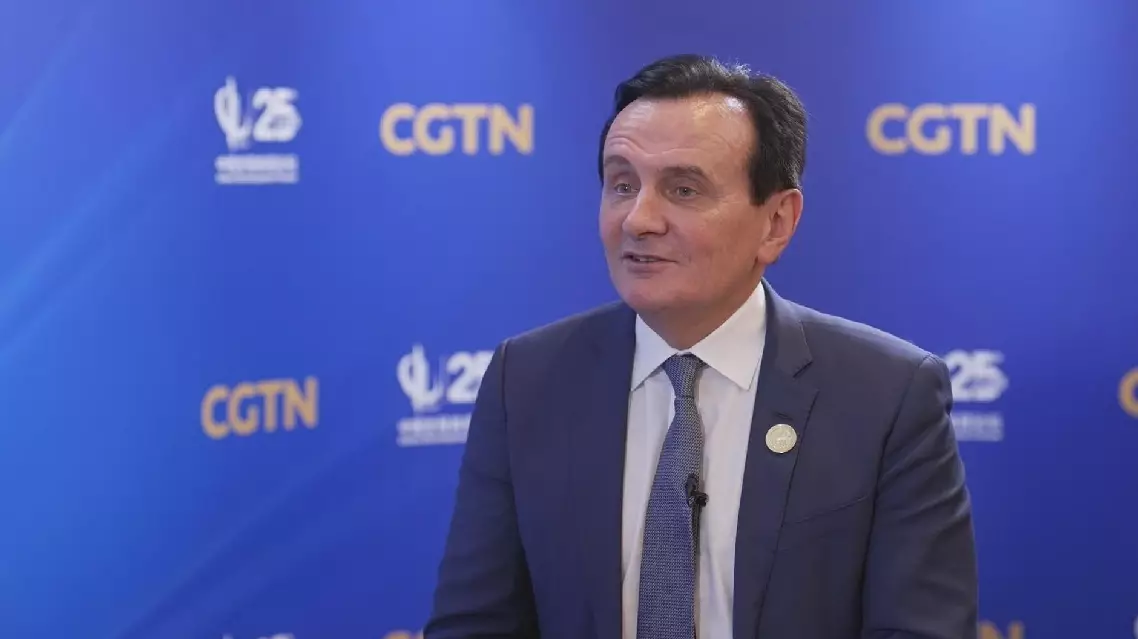Pascal Soriot, the chief executive officer of global pharmaceutical giant AstraZeneca, has announced the company will invest 2.5 billion U.S. dollars in a research and development center in Beijing, focused on accelerating scientific innovation, leveraging artificial intelligence (AI) in drug development, and reinforcing the company's commitment to China's healthcare sector.
In an interview with China Global Television Network (CGTN) over the weekend at the 2025 China Development Forum, Soriot discussed AstraZeneca's plans for this significant investment.
"Last year, we announced an investment in manufacturing -- a big plant in Qingdao. This year, we are announcing a large investment of about 20 billion yuan in Beijing to create the No.6 R and D strategic center in the world. And we do this because innovation in our industry, in China, is exploding. And we want to partner with those companies and help them, work with them, to develop new medicines, and bring those medicines as quickly as possible to patients in China, but also outside of China," Soriot said.
The investment is aimed at enhancing AstraZeneca's research and development capabilities to address both local and global healthcare needs. Soriot emphasized the collaborative nature of the company's strategy.
"What we're going to do is partner with academic institutions and also biotech companies to very quickly, using AI, research and develop medicines. And then we will use our global clinical network to do clinical trials around the world, and then of course, get approval and commercialize these medicines, that many of them can be manufactured in China and exported from China. We already export to 70 countries around the world from China," Soriot explained.
AI is a cornerstone of AstraZeneca's drug development strategy, and Soriot emphasized the transformative impact the technology has on the industry.
"So AI is actually affecting many, many industries, of course, many parts of life. But in our industry, it has a tremendous impact. In the past, when you had a molecule, you had to optimize it, it would take six months. Now you can do this in two weeks. It also helps us accelerate the clinical trials. So AI is really transforming the way we develop medicines," Soriot said.
Beyond innovation, AstraZeneca is prioritizing patient care through early diagnosis and chronic disease management.
"We invest in early diagnosis, and then we bring those medicines to patients. We partner with hospitals and doctors to make sure patients are diagnosed and treated appropriately. And that's where we focus our interventions: diagnose patients early, try to keep their chronic conditions under control. And again, the objective is really to make sure people not only live longer, but they live, they are healthy," Soriot said.

AstraZeneca to invest 2.5 bln dollars in Beijing research, development center









